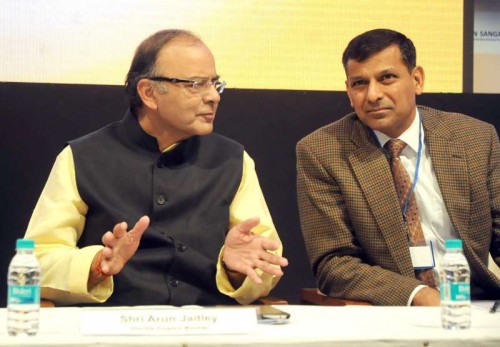
By Venkatachari Jagannathan
Even as the central government has decided to review the new norms to file income tax returns barely three days after it was notified, due to widespread angst, experts termed the original proposal nothing but “tax terrorism” unleashed on honest tax payers.
“This is real tax terrorism. This does not target corrupt politicians, dishonest bureaucrats or the unscrupulous businessmen and film personalities who merrily evade taxes and stash away their ill-gotten wealth abroad,” said P.S. Prabhakar, partner, Rajagopal and Badrinarayanan, a chartered accountancy firm.
“The government’s decision affects the common people. They are expected to unnecessarily spend huge time and cost even for doing their basic duty of filing returns. It will involve filling up so much of detail not significant to them,” Prabhakar said.
The move, accordingly, drew loud protests and there were indications that the norms will be reviewed.
“The finance minister (Arun Jaitley) spoke to me from Washington. He has asked me to make the format simpler. He said the government must be proactive and he quickly decided to review the new income tax returns’ format,” Revenue Secretary Shaktikanta Das said.
“The additional information was actually sought to deal with unaccounted cash. This was also one of the recommendation of the SIT on black money,” he said referring to the Special Investigation Team set up by the Narendra Modi government at the behest of the Supreme Court.
Asked when the decision will be taken, Das said: “I can’t say now when the format will be revoked. We have to follow a process. All I can say now is that the format will be reviewed.”
Another well-known chartered accountant, M.R. Venkatesh, said nothing useful will actually emerge by resorting to the new forms. “It is really a draconian measure. It has the potential to turn into tax terrorism. The real culprits would continue to go free,” Venkatesh said.
On April 15, the Central Board of Direct Taxes (CBDT) had notified new norms and the attendant forms that, among other issues, requires an assessee to furnish all bank details, opened or closed in the year with the closing balance, as also the sources of funds for expenses in an overseas travel.
People complained the move was far from the promise of making the process of filing returns easier.
“Tax return forms are getting more complicated and taxpayer-unfriendly. No matter which government is in power, honest citizens are harassed due to the never-ending sadism of bureaucrats in North Block who seem to enjoy this,” said Prabhakar, referring to the finance ministry in New Delhi.
“There is no serious attempt to get those millions of people who earn well but never bother to file.”
Former chief economic advisor Arvind Veermani who knows the subtleties of how the decisions are taken in North Block, also felt the move was ill-aimed. He suggested a much bolder review of the items that were introduced over the past few years to make it simpler for the average assessee.
“Can guarantee, it won’t cost you much revenue (less than Rs.1 crore) but gain goodwill from ordinary tax payers,” he tweeted in a message, ostensibly meant for the finance minister, while also alluding to the fact that there are just 3.7 million income tax assessees in India and fewer who evade taxes.
“The revenue department’s intelligence wing is either un-intelligent or dishonest. Otherwise, is it possible for any finance minister to shamelessly admit that in this country of 1.2 billion people, only 42,800 filed returns with income of more than Rs.1 crore?” Prabhakar said.
“The policy appears to be: Forget those who never file returns, squeeze those in our net.”
Tax experts said there was, indeed, a stipulation that a person who has been overseas has to file returns. “But asking information for the year that has already gone by even from the salaried and interest income earners, definitely shows an overbearing attitude,” said Prabhakar.
Tapati Ghose, partner with Deloitte Haskins and Sells, added: “Given that disclosures are required for the financial year 2014-15, one would need to collate and analyse the expenses incurred on the trips made in the recently-concluded tax year.”